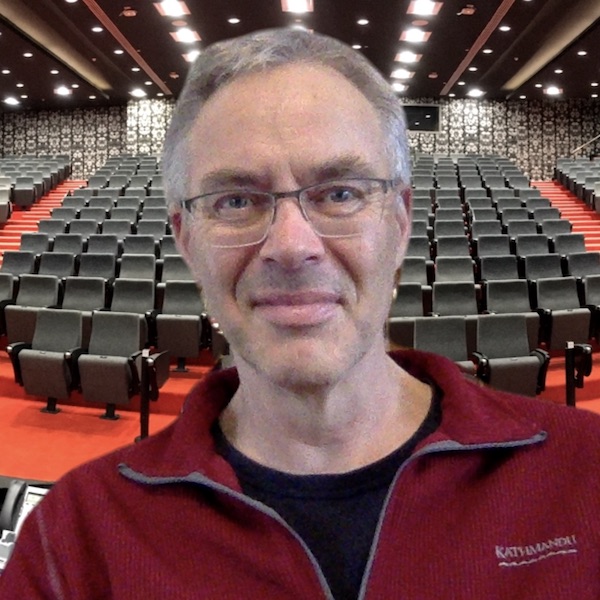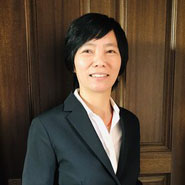

SIGIR-AP is an annual ACM-sponsored conference that promotes and disseminates information retrieval research and development within the Asia-Pacific region, defined as all of Asia, Australasia, and the islands of the Pacific and Indian Oceans. It is a major international forum for the presentation of new research results and the demonstration of new systems and techniques in the broad field of information retrieval (IR). The main conference is a two-day event, with tutorials and workshops days before and after the main conference, as required. Other related events, such as CCIR, NTCIR, ADCS, and FIRE, may also be scheduled in the days before and after the main conference.
The proceedings of previous SIGIR-APs may be ordered from ACM, or you can go directly to ACM Digital Library for the proceedings.
Beijing, China
November 26th-29th, 2023
Tokyo, Japan
December 9th-12th, 2024
Xi'an, China
December 7th-10th, 2025
Next SIGIR-AP
To be announced
...
...
SIGIR-AP will be held in November/December in a country or region in the Asia-Pacific region outside (even year) or inside (odd year) mainland China. In 2023 SIGIR-AP (in Beijing) established an approach that included a satellite location (in Melbourne), and we anticipate that multi-location structure to continue.
Expressions of Interest are now requested from teams who are interested in hosting the next conference.
In your EoI please include information about:
(1) Indicative costing (in 2023 prices will be fine) from your preferred venue (and two if you wish to compare and contrast) venues at for your proposed three- or four--day window, covering the anticipated conference schedule (for your nominated dates):
(2) Estimated AV costings (in 2023 prices will be fine) for that same configuration of rooms, covering:
(3) Indicative catering costings (in 2023 prices will be fine) from the proposed venue for morning/afternoon coffees for up to 150 people across the planned conference days.
(4) Indicative per-person costings (in 2023 prices will be fine) for a reception for 150 people at the proposed conference venue or some other nearby location. Please make clear whether these costing include both food and beverages, or whether beverages would be via "individual purchase" at the bar.
(5) Indicative per-person costings for a dinner/banquet for 150 people at the proposed conference venue (or some other preferred venue in your city), including the nature of the food service (sit-down or stand up, buffet, etc) and information about the nature of any beverage services that are included in that price structure.
(6) Details (name, location, capacity) of two or three possible hotels within walking distance of the venue, at (roughly) 3-star, 4-star, and 5-star standard, including current per night room rate including breakfast (look it up on their web site, pretending to book for November).
(7) Any relevant information about yourselves: past conference organization experience or other "service" experience.
(8) [Optional] Names of three people who you would consider appointing as PC Chairs (please do NOT invite them yet), making sure that you have diverse representation across countries and gender.
Please send your EoI to Yiqun Liu (yiqunliu[at]tsinghua[dot]edu[dot]cn) and Alistair Moffat (ammoffat[at]unimelb[dot]edu[dot]au) by 31 January 2024.
The topics of interest to the SIGIR-AP community include but are not limited to the following areas
Research on core IR algorithmic topics, including IR at scale, such as
Research focusing on recommender systems, rich content representations and content analysis, such as
Research bridging ML, NLP, and IR, such as
Research into user-centric aspects of IR including user interfaces, behavior modeling, privacy, interactive systems, such as
Research that focuses on the measurement and evaluation of IR systems, such as
Research on aspects of fairness and information bias in search and recommender systems, such as
Research focusing on domain-specific IR challenges, such as
SIGIR-AP will make every effort to be carbon neutral. Towards this goal, in-person attendees will be encouraged to purchase carbon credits matching their transport costs, and all conference purchases will either be undertaken via approved green suppliers, or be matched by the purchase of carbon credits as part of the conference budget.
Attendance options will be permanently available for remote participation, including remote/online attendance; remote presentation of papers; and support for possible satellite venues elsewhere in the Asia-Pacific region at which groups of people might gather to attend the conference.
Online attendance fees will be set at a level sufficiently low to be viable to interested people from all countries. Where even those fees would prove onerous to individuals, online attendance at the conference will be made available free of charge.

Professor
Department of Computer Science and Technology, Tsinghua University
Beijing, China

Professor
School of Computing and Information Systems, University of Melbourne
Melbourne, Australia

Professor
Cheriton School of Computer Science, University of Waterloo
Waterloo, Ontario, Canada

Professor
Department of Computer Science, Fudan University
Shanghai, China

Associate Professor
Faculty of Library, Information and Media Science, University of Tsukuba
Tsukuba, Japan

Vice President of Science & Research
Alexa Shopping, Amazon
Haifa, Israel

Professor
Department of Computer Science, University College London
Amazon Scholar
Amazon Alexa Shopping
London, England, UK